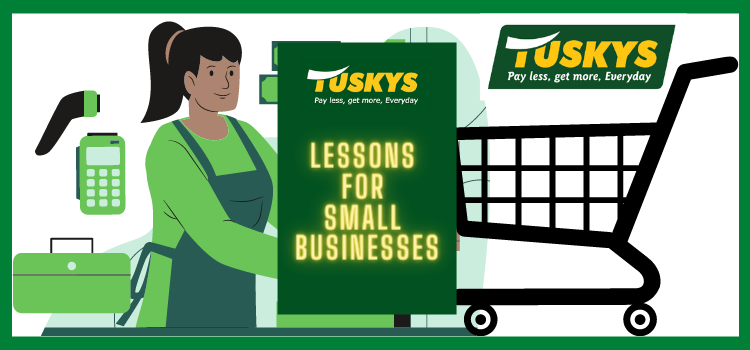Local supermarket retailers have almost established a theme. Think of Uchumi, Nakumatt, and now Tuskys, what do these retail giants have in common?
Uchumi was at one time the best supermarket in Kenya with branches all over the country and the larger East Africa region. It had a total of 37 branches at some point with a cumulative experience of 40 years in the local retail industry.
Since Uchumi is a listed company in NSE, it is possible to track its performance. Between years 2012 and 2019, Uchumi lost 97% of its value in a downward spiral that took it from being an admirable stock in East Africa to a bundle of lawsuits with suppliers.
Nakumatt on the other hand was the highest-rated supermarket in terms of service and product range during its peak time.
Everyone loved shopping at Nakumatt.
It was also at one time East Africa’s biggest retailer with 62 branches. Just like Uchumi, Nakumatt also went down really quickly with debts accumulating to almost Kshs. 20 billion. At the time of its liquidation, its creditors voted with a 92% unanimous agreement that supermarkets should be shut down and assets sold to repay the debts. Several other controversies surrounded Nakumatt’s fall including allegations of money laundering and poor corporate governance.
It is also worth mentioning Choppies supermarket.
Choppies, formerly Ukwala, while not a leading retailer currently, has had its fair share of problems. In 2019 it announced plans to exit the Kenyan market and then retracted the plan altogether after a new board was appointed. Some of the issues cited by the retailer were managerial problems leading to poor cash flow and disagreements with suppliers.
Notably, expanding too fast caused destabilized Choppies given it had already acquired Ukwala’s struggling business and absorbed a loss of 126.8 million.
The common theme in all these retailer giants and their woes is suppliers.
Uchumi sank with Kshs 3.6 billion of unpaid debts to suppliers while Nakumatt, at the time of liquidation, owed suppliers 18 billion.
Choppies, although still in the market, owed suppliers 600 million at the time of its planned exit.
A surprising fact is that when Nakumatt was drowning in debt, its directors had allotted themselves interest-free soft loans of almost Kshs. 1 billion from the supermarket’s coffers. A similar trail of management behavior can also be seen in Uchumi where directors were accused of fraudulent dealings that cost the firm hundreds of millions of shillings.
Suppliers are the hardest hit in the above cases. Given a significant number of these suppliers are small-scale investors, their businesses are often paralyzed by unpaid debts.
Uchumi for example at one time told its suppliers to either take 30% of what it owned them or get nothing at all.
To a small business, if they expected to be paid Kshs. 1 million but end up being paid Kshs. 300,000 or nothing, this is enough to cripple the whole operation.
A hard lesson therefore that small-scale investors and their businesses should learn is to exercise caution when dealing with giant retailers.
It is important not to tie your business to one major client such as Tuskys, Quickmatt, Carrefour, or Naivas. History has proven that it only takes one mistake from the directors of these supermarkets for the suppliers to go under.
And while it is not possible for the suppliers to change the credit policy of the supermarket or refuse to trade with them, there is a wise saying that goes, “do not put all your eggs in one basket”.



















